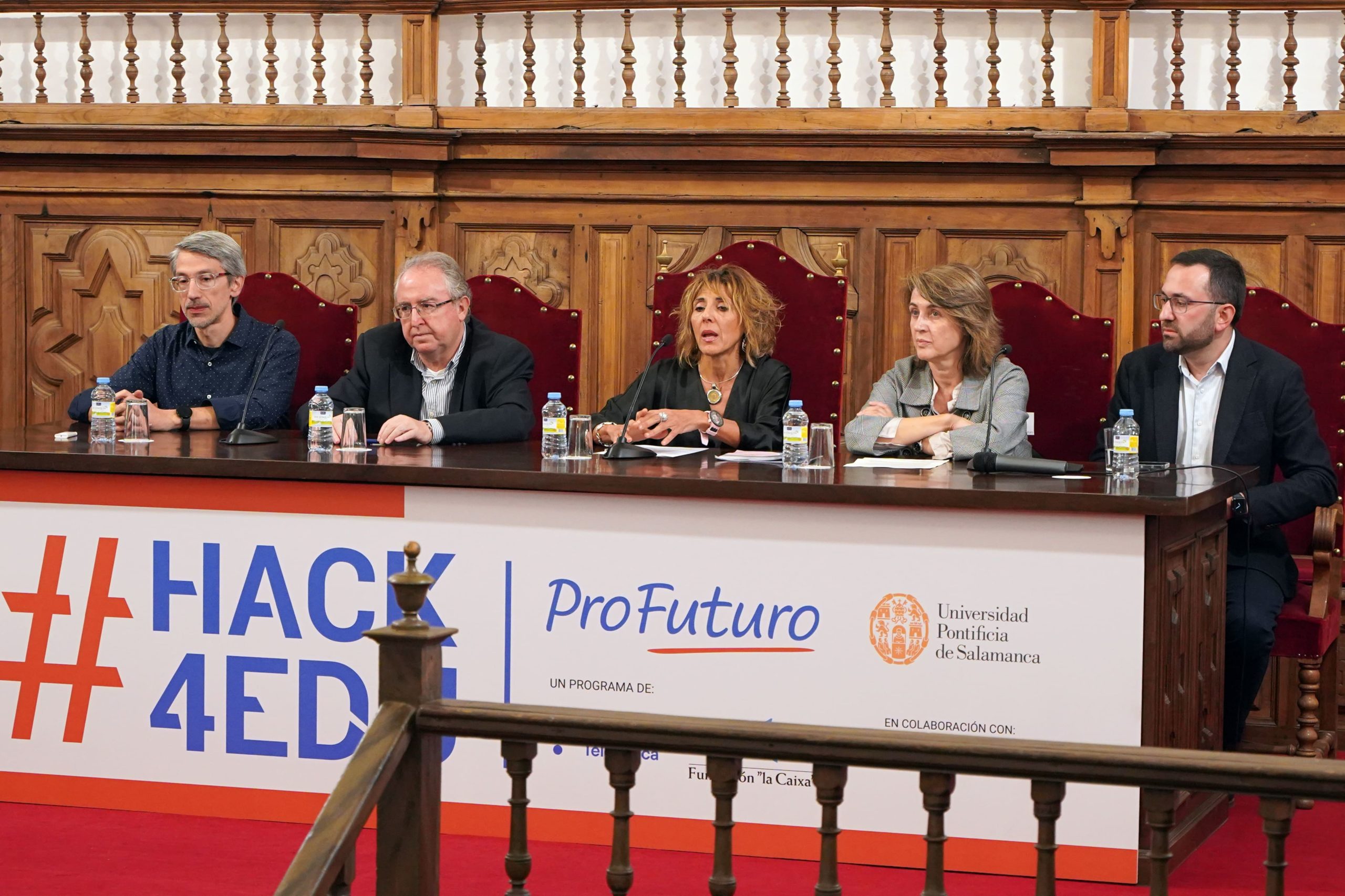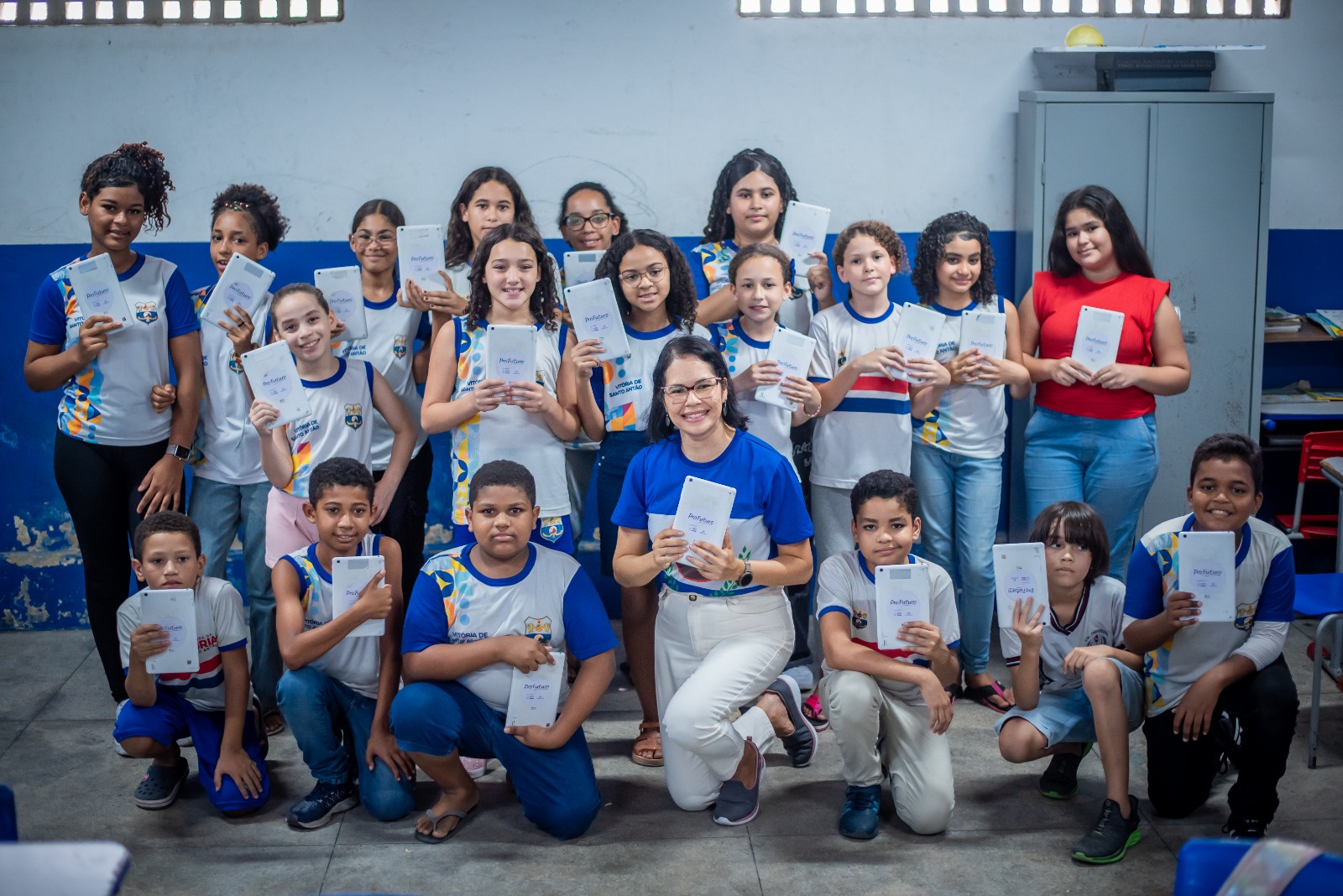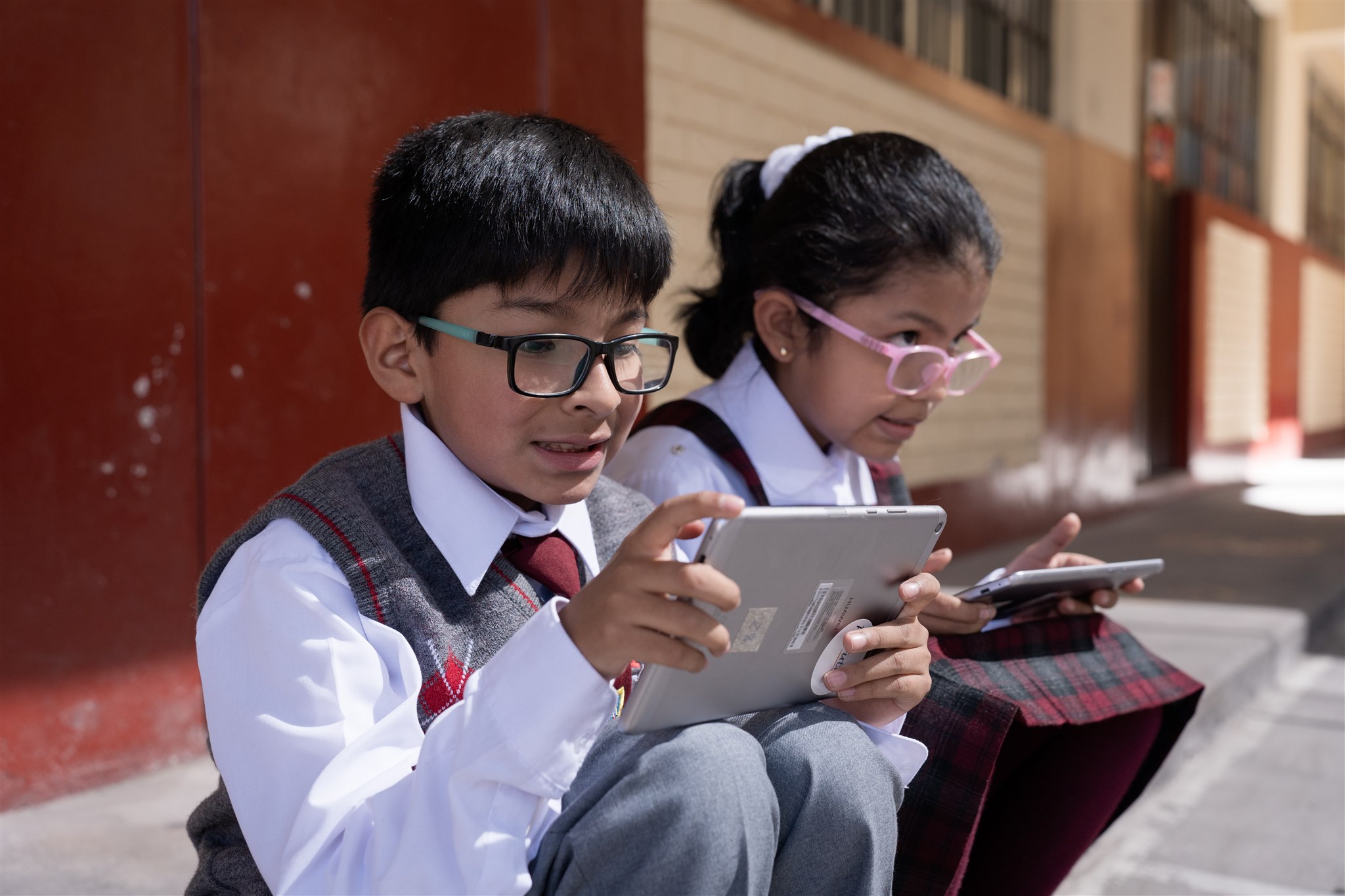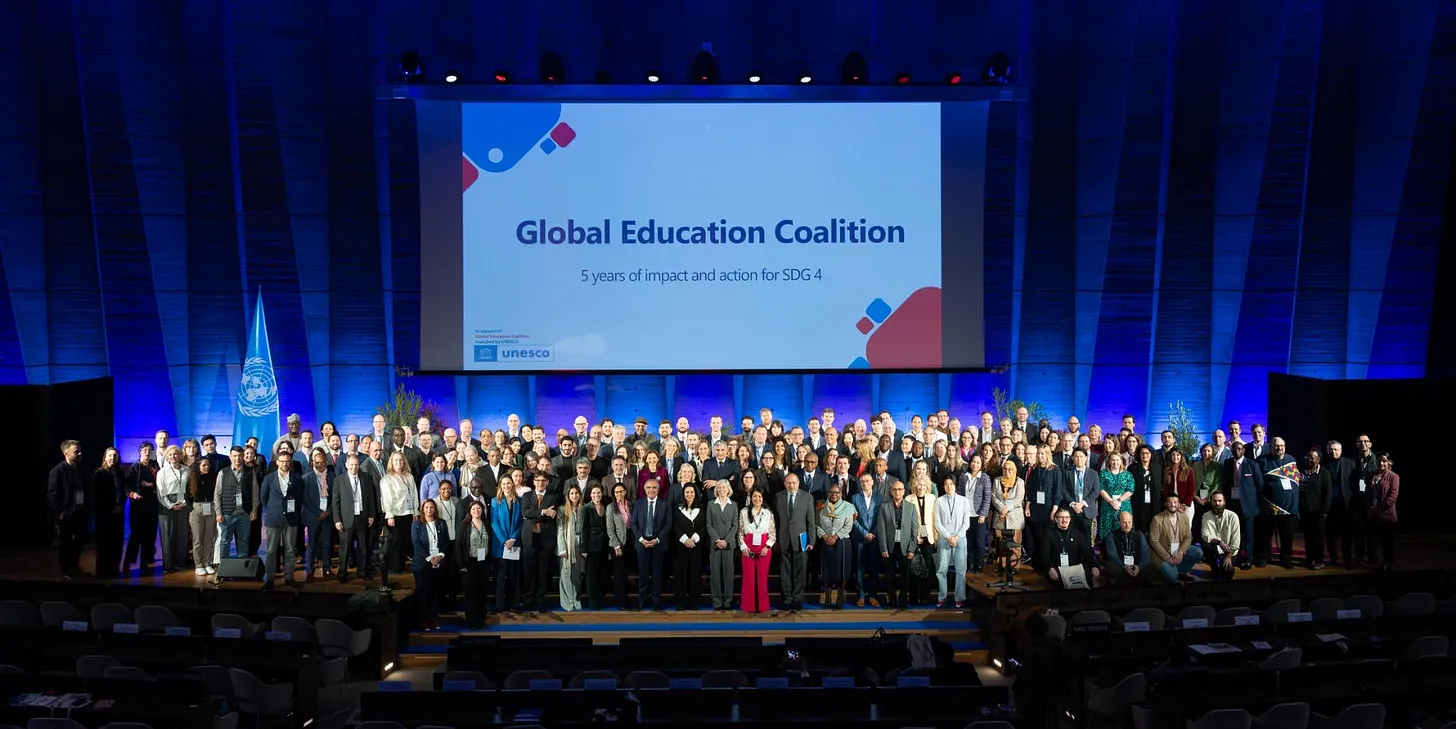The hackathon, hosted in hybrid format between 24 and 27 October with UPSA as the main venue in Spain, represented a milestone in the academic and technological sector: the celebration of the 4th edition of #hack4edu, the biggest educational hackathon in Latin America dedicated to digital education, with a focus on artificial intelligence.
The quantity and quality of the proposals submitted and the number of participating hackers, which beat the records of all previous editions, have been a great challenge for the deliberation of the jury of #hack4edu, the first hybrid, international hackathon with a social purpose dedicated to digital education.
This initiative stems from ProFuturo, the digital education program of Fundación Telefónica and «La Caixa» Foundation, in collaboration with Universidad Pontificia de Salamanca (UPSA), and with the support of the Telefónica Cathedras Network. This 4th edition represents the consolidation of the hackathon, as it breaks its own records: the first three editions brought together 415 hackers from 16 universities in 8 countries, who faced 115 challenges. Just this year, we have received 534 hackers from 30 universities in 10 countries: Argentina, Brazil, Colombia, Spain, Mexico, Panama, Peru, Portugal, Dominican Republic, and Uruguay; and 61 technological challenges to be solved.
We tell you what’s happening day by day #hack4edu
24 October:
Opening session
On 24 October, at the UPSA headquarters in Salamanca, the opening ceremony of #hack4edu was held. The university’s headquarters welcomed Ana Mª Fermoso García, Vice-rector of Research and Transfer; Magdalena Brier, General Director of the ProFuturo Foundation; Manuel Martín-Merino Acera, Director of the Telefónica Chair at UPSA and coordinator of #hack4edu; Manuel José Ruiz, Manager of Data Analytics, Product and Innovation at ProFuturo, and Javier Carro, Product Manager at Telefónica’s Open Gateway.
Participants discussed the significant importance of participating in these events, which after 72 hours of hard work, have managed to connect students from different disciplines and countries around the same goal, to contribute to quality digital education through technology and AI.
“Imagine what 500 minds, multidisciplinary teams from more than 10 countries, with 30 universities working together, collaborating and solving challenges with enthusiasm and creativity, to find solutions to the 61 challenges facing education in the world,” said Magdalena Brier, our CEO, highlighting how these initiatives are aligned with the Foundation’s goal, which is to reduce the social, educational and digital divides in the countries where we have an impact, with an emphasis on vulnerable and emergency contexts in Latin America, the Caribbean, Africa and Asia.
To watch the full opening ceremony, click here.
Motivational talk
Javier Carro, during his talk entitled “Two stories to understand #hack4edu,” captivated an audience hungry for motivation, emphasising the significant importance of innovation and engagement in education.
In his first story, Carro shared his experience at Big Data for Social Good, a company that used data to analyse a wide range of issues, from climate change to city mobility with the aim of reducing pollution. Speaking about business engagement, he emphasised the need for companies to contribute to social welfare, an ideal reflected in #hack4edu, an international hackathon designed to improve digital education globally.
“We are in the right place at the right time for these changes to have a significant impact on society,” he said.
In the second part of his talk, Carro shared the story of his first hackathon experience and how he found in these spaces what he calls “The Virtuous Circle” When there are many users using a platform, the platform is forced to add more value. When the platform provides great value, it attracts more users. Initiatives like #hack4edu result in a virtuous circle, where the expansion of the community translates into greater value contributed and received.
He concluded his presentation by emphasising that motivation is the key to achieving significant progress in educational transformation. Javier Carro’s talk engaged a thoughtful audience, emphasising the potential of innovation and collaboration to impact education and society as a whole. With his stories, Carro proved that change is achievable, and commitment is essential for a brighter educational future.
Networking session on Slack
At the end of the opening, the first networking session was held with the presentation of the selected challenges, the required profiles and the configuration and registration of the teams. Since this is a hybrid event, a Slack channel was set up to facilitate communication and coordination between teams from different countries and time zones.
Additionally, in this session, where the 534 hackers from the 10 participating countries met for the first time, a team of 25 Telefónica volunteers was assigned to advise and accompany the groups in the development of their prototypes and projects. Participants have complete autonomy in their creations, but are guided by professionals to maximise the potential of their ideas.
25 and 26 October:
Working sessions
The two days of project work and development are the most intense for the hackers. The junior and senior profiles, mostly university students in STEM careers and professionals from multiple disciplines such as education, computer science, pedagogy, communication, business and psychology, mix and interact to enhance the creativity and innovation of the teams.
The teams count on the physical headquarters of the UPSA and the digital channel in Slack to carry out their work in a hybrid way. Through a process of coordination between countries, schedules and teams, all participants had the same opportunities and the same time to develop their prototypes and their presentations to the jury.
27 October:
Project presentation and awards ceremony
On 27 October, the fourth and last day of the #hack4edu hackathon was held at the UPSA headquarters in Salamanca. Selected projects were presented, 4 per university from each of the 10 participating countries, and the hackers presented their technological solutions to the chosen challenges for the improvement of digital education through artificial intelligence.
The presentation of the 30 projects was done in a hybrid way: the teams from the Spanish universities presented their work at the UPSA headquarters, where the panel of judges was also present, and the rest of the teams presented their work via Teams.
The day was intense but very interesting. Faces of tiredness as well as enthusiasm for the work and the results achieved. Some of the presentations set the bar very high and left a seal of quality for the 5th edition of #hack4edu.
Winning projects of this IV edition
The #hack4edu participants competed for 7 prizes that have been divided into four categories: Innovative, Senior, scholarship and publication. Three prizes of € 1,000, € 700 and € 500 were awarded to the three best projects in the Innovative category and two prizes of € 1,000 to the two best in the Senior category. In addition, two free enrolments were awarded for the Special Degree in Big Data at the Universidad Pontificia de Salamanca, one in each category, and the publication of two research articles in the Springer publishing house by each participating university has been agreed.
This year’s winners are:
- Senior Category:
- First prize in the Senior Category: Leire’s pill: Emotutor IA, Factory 5, Spain.
- Shared second prize Senior Category: Leaders4Edu of UPSA, Spain.
- Shared second prize Senior Category: Yukunaka AI-driven Multilingual Educational Access, Universidad Tecnológica de Panamá, Panama.
- Innovative Category:
- First prize: MENTAL HEALTH: AI supported personalised inductive learning based on emotion recognition at the Universidad Mexiquense del Bicentenario, Mexico.
- Second prize: PeerExplain of the Politecnico de Viseu, Portugal.
- Third prize: GARAI: Gamification, abp methodology and neural network to stimulate and improve academic and inclusive performance at IFC – Instituto Federal Catarinense – Camboriú SC, Brazil.
- Winners of the study grant:
- ECORA: Eco-Educational Robotics Set of the Technological University of Panama, Panama.
- Publication of research articles:
- All universities
Winners were immensely happy for the recognition of their work and also for the material prize, which supports them to stay motivated in their professional careers and to do their bit for social projects such as ProFuturo.
The transforming power of education
#hack4edu is an event that since 2020 has opened an international space for young minds use their knowledge and skills to build the future. Education is the most powerful tool for transforming lives, empowering people with knowledge, skills and the ability to think critically. The digital environment offers opportunities, broadens horizons and enables informed decision-making, making a significant contribution to society.
Personal growth and collective progress are possible if, and only if, we create these kinds of spaces that, through education, transform.
To all participants, thank you for being part of the community that believes in the transforming power of education!
To those who have just learned about the initiative, are you ready to participate in the next edition?
Other hack4edu news:
- Discover the winning projects of the 4th edition of #hack4edu
- The 4th #hack4edu is coming: The international hackathon on digital education and Artificial Intelligence promoted by ProFuturo
- Presentation of the fourth hack4edu: the international hackathon on digital education and Artificial Intelligence
- ProFuturo invites you to improve education by proposing challenges with AI at #hack4edu
- International hackathon #hack4edu kicks off: an opportunity to transform digital education through artificial intelligence
The moment is coming!
Are you going to miss out on this opportunity?
Further information available at: https://profuturo.education/hack4edu/
X: @ProFuturo_
IG: @profuturo_
YT: ProFuturo






